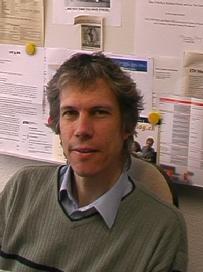|
Home
News
People
Research
Publications
Courses
Seminars
Data & Code
Contact Us
Calendar
Other Links
|
|
|
|
Computational Symmetry: Past, Present, and Future
Tutorial at ECCV 2010
Yanxi Liu (Pennsylvania State
University)

Humans, animals and insects have an innate ability to perceive and take
advantage of symmetry, which is a pervasive phenomenon presenting itself in all
forms and scales in natural and man-made environments. Though our understanding
of repeated patterns is generalized by the mathematical concept of symmetry and
group theory, and seeking symmetry from digital data has been attempted for
over four decades, few effective computational tools are available today. The
perception and recognition of symmetry have yet to be fully explored in machine
intelligence, in particular computer vision.
Motivated by a re-surging interest in computational symmetry in the computer
vision and computer graphics community, we organize this timely and unique
course (associated with a competition) to investigate this potentially powerful
intermediate level computer vision tool. The event has three main
components:
- a multidisciplinary perspective on the importance and lasting impact of
symmetry detection, presented by a worldwide group of distinguished
speakers
- a detailed summary of relevant mathematical theory (symmetry group
theory), state of the art algorithms and a diverse set of applications
(successes and failures), presented by the organizer
- the algorithms and the outcome of the first "symmetry detection algorithm
competition", presented by the top three winners of the benchmarked
symmetry detection algorithms
1. Tutorial Material:
2. Invited Speakers [link] All speakers and the organizer's slides available upon request.
|
 |
 |
 |
| Dr. Zygmunt Pizlo |
Dr. Luc Van Gool |
Dr. Sven Dickinson |
|
3. Symmetry Detection from Real Images Competition:
|
With support from NSF, we are organizing the first "Symmetry
Detection from Real Images" algorithm Competition in Computer Vision
Round One (with ECCV 2010):
Send your algorithm (binary or source code) to asad@cse.psu.edu. The competitors
can remain anonymous if prefer, test results and feedback will be sent
back to the authors.
Round two (with CVPR 2011):
Updated training sets will be provided right after ECCV 2010. A
preliminary test and second test will be held in January and March
respectively. The winners (top three) will receive a free trip to CVPR
to present their results.
Round Three (with ICCV 2011):
The final competition will be held at ICCV 2011 on a further refined,
much larger and highly varied test image set. The winners will receive
industrial awards during ICCV 2011.
|
|
|



